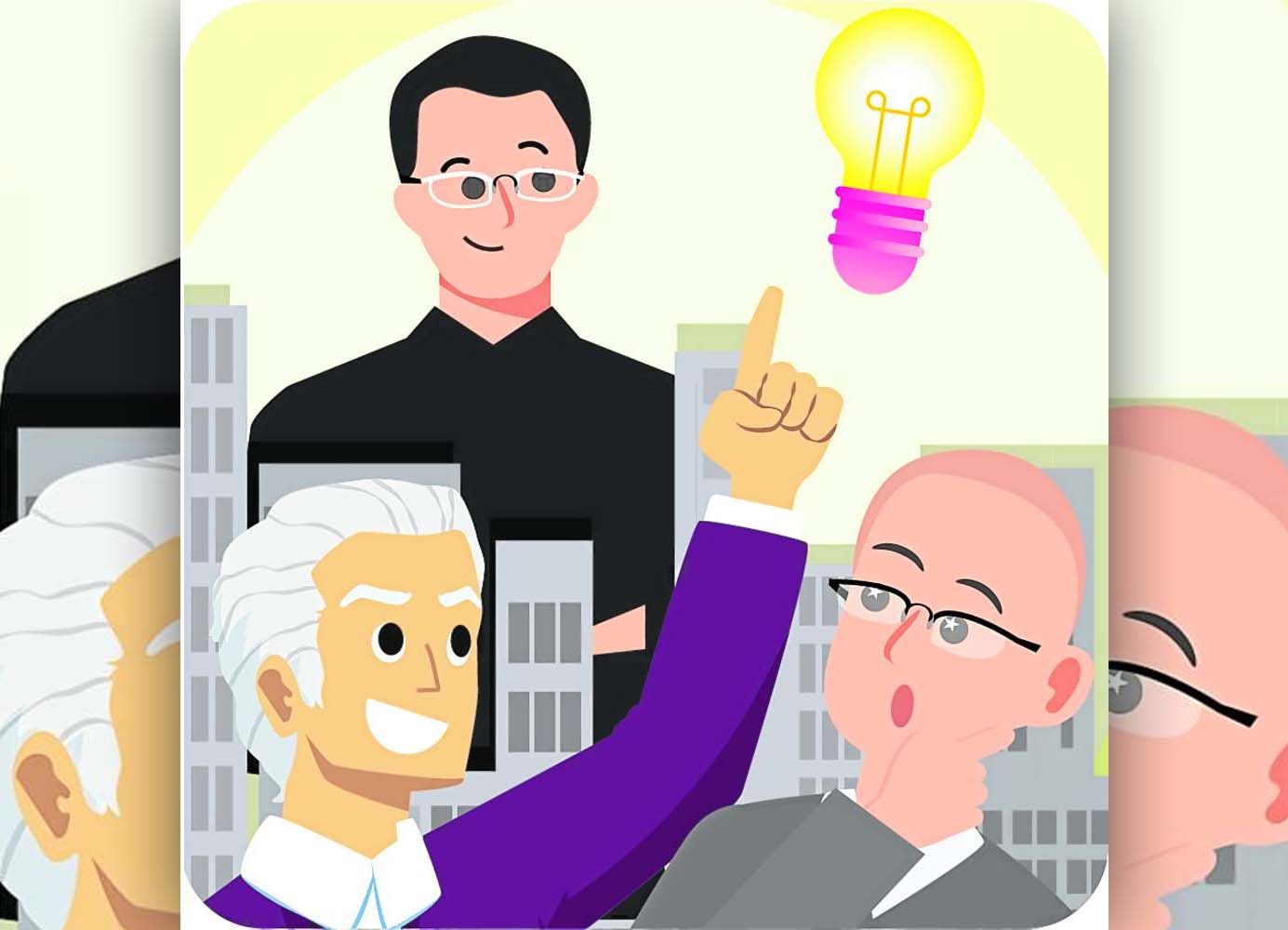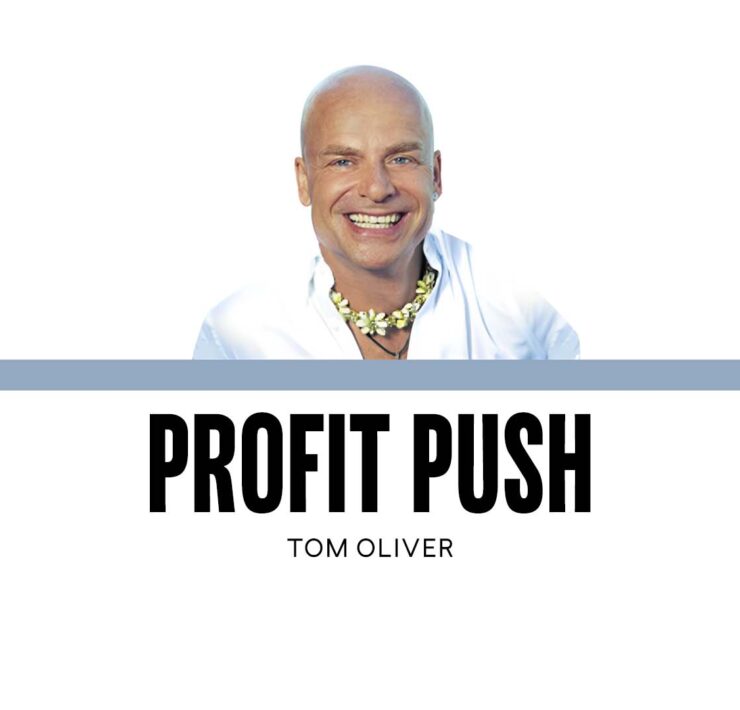What Gates, Jobs, Bezos and Musk know that you don’t

In my many years as the “mentor of the giants” (Fortune), I’ve had the privilege of advising and interacting with some of the most successful self-made billionaire entrepreneurs in the world. Despite their different industries and approaches, they share common mental models and principles that have propelled them to extraordinary success. This isn’t a coincidence. These are the very mental frameworks and principles that set them apart. In this article, I want to delve into what those are—and how you can apply them, too.
1. Reality-bending willfulness
One of the key mental models they all apply is what I call a reality-bending willfulness. Their mindset is rooted in the belief that almost anything is possible. They never entertain the notion that something can’t be done, leaving no room for negativity. They start from a place of understanding that boundaries are fluid and that what the rest of the world considers impossible is just a challenge to be overcome.
This healthy disregard for conventional limits allows them to set goals that others might deem nearly impossible. This willfulness is the foundation on which they build their extraordinary achievements.
2. The power of stretch goals
Another crucial principle they embrace is setting stretch goals—goals that are barely realistic but still achievable. The same applies to their deadlines, which are often almost unrealistically ambitious. Bill Gates, Elon Musk, Steve Jobs, Jeff Bezos and Larry Page all share this approach.
They have a healthy disrespect for the status quo. That’s why they sometimes prefer to put very smart people on a problem, even if they’re not experts. Experts often work within the confines of the existing system, while smart amateurs think outside it.
A great example: Larry Page once asked five Google engineers to build an ad server in six months—a task many considered impossible. They did it. Because they didn’t know it was supposed to be impossible.
These stretch goals shift mindsets. What once seemed insane becomes standard. Over time, what others call “impossible” is rebranded internally as “very late.” And often, these teams hit their marks—sometimes on time, sometimes even ahead of schedule.
Elon Musk is a prime example. His timelines are notoriously aggressive, but even when they slip, they outperform competitors. Stretch goals push people to rise far beyond what they would aim for on their own.
3. Beginner’s mind: Zen and innovation
Another principle they share is approaching problems with a beginner’s mind.
Shunryu Suzuki, a Zen master who helped bring Zen Buddhism to the West, said, “In the beginner’s mind there are many possibilities, but in the expert’s there are few.”
This mindset allows even the most experienced leaders to stay open to ideas that defy conventional thinking. A fitting story from Japanese tradition captures this.
A young disciple eager to learn visits a Zen master. The master pours him a cup of tea. The cup fills, then overflows—but the master keeps pouring. The disciple says, “Why do you keep pouring? The cup is already full!” The master replies, “Exactly. Like this cup, your mind is full of your own opinions. How can I teach you unless you first empty your cup?”
These greats approach each challenge with the humility to say, “What if everything I think I know is wrong?” That’s how breakthroughs happen. That’s how they keep reinventing themselves—and their industries.
4. Maniacal urgency meets relentless patience
They all approach everything they do with an almost maniacal sense of urgency. It’s not casual. It’s driven. And while it may look chaotic from the outside, it’s rooted in one thing: vision.
These self-made billionaires constantly hold an ideal future in their minds. They see it—how their company could look, how a product could reshape an industry, how the world could be better. And when they compare that compelling vision with the current reality, they feel a fire. That gap becomes intolerable. That tension drives them to act—fast.
But here’s the paradox: they also have patience. Deep, dogged persistence. They’ll keep pushing on the same problem for years, even decades. So while they move with urgency, they endure with resolve. Most people think urgency and patience are opposites. But in these leaders, they coexist—perfectly.
This blend shows up in Jobs, Bezos, Gates, Musk and the Google founders. None of them “take it easy.” They’re ultra-competitive, not to beat others—but to beat inertia. To close the gap between what is and what could be.
5. The iterative path to breakthroughs
Another principle they live by is taking an iterative approach to success. They never expect perfection on the first try. They launch fast, test early, learn quickly and adjust relentlessly. Success is not a straight line—it’s a process of refinement.
They don’t wait for the perfect moment or the perfect product. They ship. They iterate. Because they know that each version, each failure, each test brings them closer to brilliance.
Jeff Bezos put it well, “If you double the number of experiments you do per year, you’re going to double your inventiveness.” That’s the game. Fast feedback. Relentless refinement.
And it’s not limited to products. They apply it to everything—strategy, hiring, marketing, leadership. Musk iterates on rockets. Bezos iterated Amazon’s entire model. Jobs iterated until perfection emerged from simplicity.
They don’t see iteration as failure. They see it as evolution.
6. Brutal honesty and the power of A players
Another powerful principle they all share is brutal honesty. These visionaries don’t sugarcoat. Musk, Jobs and others have been known to say things like, “This is the stupidest idea I’ve ever heard.” In most corporate environments, that would be considered impolite. Here, it’s essential.
Their honesty comes from a place of urgency and precision. They can see the gap between the world today and the world as it should be. So anything that slows progress—fuzzy thinking, mediocre execution—is simply unacceptable.
To close that gap and make the impossible possible, they build teams of A players. World-class talent. The kind of people who are 10 out of 10. And here’s what most people miss: five fives don’t make a 10. Not even close. There is a magic that only happens when A players work together. They spark each other. They challenge each other. They raise the bar.
That’s why these leaders are intolerant of anything less. Because they know what’s at stake. And when you build a culture that only tolerates A players, it becomes self-reinforcing. A players attract other A players.
It’s why people who leave companies like Tesla or Apple often want to return. Despite the stress, despite the lack of work-life balance, they miss excellence. They miss doing the best work of their lives. Because deep down, that’s what A players want: an environment where they can stretch the limits of what’s possible.
Tom Oliver, a “global management guru” (Bloomberg), is the chair of The Tom Oliver Group, the trusted advisor and counselor to many of the world’s most influential family businesses, medium-sized enterprises, market leaders and global conglomerates.
For more information and inquiries: TomOliverGroup.com or email Tom.Oliver@inquirer.com.ph.
Tom Oliver, a “global management guru” (Bloomberg), is the chair of The Tom Oliver Group, the trusted advisor and counselor to many of the world’s most influential family businesses, medium-sized enterprises, market leaders and global conglomerates. For more information and inquiries: www.TomOliverGroup.com or email Tom.Oliver@inquirer.com.ph.


















